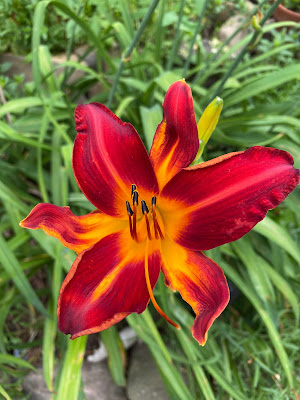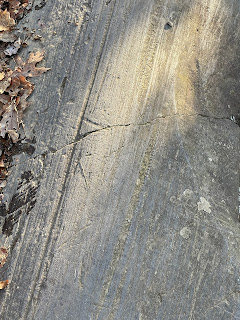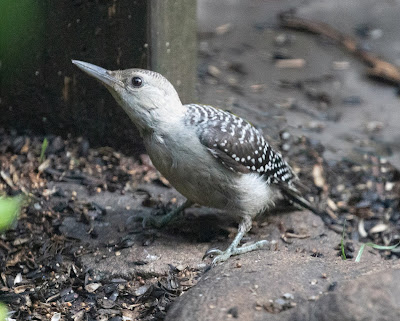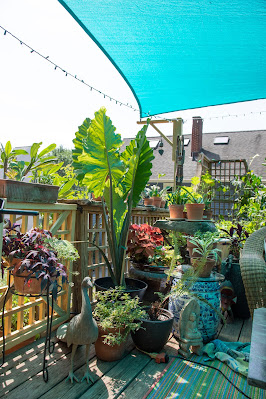July 2.
I never know what I’m going to say in my diary in the morning.
In the same way, I never know what is going to happen in life. Someone who was trolling me a number of weeks ago call self contemplation a “luxury.” The inference was that self contemplation is excessive, unnecessary. Yet the self, my Being, is what receives life; and if I don’t use the intelligence of all my parts — the sensation, the feeling, as well as my intellect —then I only receive a fraction of what life consists of.
What flows into my intelligence alone is confused and subject to the relativity of what we call “rationality.” Rationality has, today, the meaning of being sane, properly organized, objective; yet in a supreme irony, the root of the word actually means the opposite. Rationality comes from the root ratio, which literally meant, in its Latin form, “reckoning,” that is, a process derived from counting various things and then drawing a conclusion from them — in other words, a personal evaluation, an opinion.
In the etymological sense, then, to be rational means to be opinionated — and as we have seen, being opinionated swiftly becomes a poison pill in the hands of those who fail to contemplate their opinions.
Contemplation, in its own turn, comes from the Latin root contemplat, which means a place for observation. It shares meaning with the Latin templum, or sacred space.
Contemplation, in other words, is an effort to see from within a sacred or consecrated place. To see; and to care. To care for others as well as myself.
Perhaps the difficulty with humanity is that we are indeed rational; that is, we place far too much weight on our opinions. It engenders stupidity; and that word, continuing on our etymological journey, comes from the Latin stupere, a word that means amazed or stunned.
We are indeed amazing and stunning; but not in a good way. Witness the lurching manner in which many Americans, at the behest of “leadership” and “freedom,” staggered towards the supreme idiocy of not wearing masks, only to turn tail and desperately run back on this whole rational process as it becomes apparent (as it always was, ahem) that not wearing masks can kill both you and others. I was saying to my friends and family in January that everyone should immediately wear masks if we wanted to mitigate the spread of this virus.
It's JULY, folks: and Americans are still arguing about it.
We still have many people in the US who insist on their “right” to not wear masks: my second day back in Manhattan yesterday, I saw approximately 5% of the people on the streets around me not wearing masks at all, and another 10 to 15% who seem to feel that having a mask somewhere near your face is good enough. Perhaps hanging from one ear, for example.
All of these people will calmly (or maybe not calmly) explain to you how rational their choices are.
It may be tempting to view all of this as a single example; yet this kind of rationality penetrates everything I do. It isn't a compassionate action; it's an enumeration skewed to the results I want for myself.
Only if I come into much more intimate touch with the sensation of my being and the feeling of my being, these other two faculties that can help me perceive correctly, will my rational mind — my opinions — have a counterweight to lend them gravity.
How to do this?
Well, it has nothing to do with putting on a mask. The odd thing about masks is that while I may refuse to wear a mask outwardly, because of a set of selfish personal beliefs, I have inner masks that disguise who I am from me. This is part of my rationality; my intellect explains everything away in perpetual dialogues of self-justification. It’s a form of psychological tension, a string that is stretched tight inside me and almost never relaxes.
Every morning, I try to begin by sitting quietly for a few moments — it doesn’t take a long time — to come to a sense of myself within my organic sensation, the natural sensation that arises from the action of my breath and the way that the air feeds my being.
I don’t need to change anything here, just be present to it. If I breathe in and out and I bring just a little awareness to it, a certain kind of vibration spreads through me which intensifies my physical awareness of being. This arises from a very fine substance that interacts with the molecules in my whole body. That isn’t a spiritual fantasy; it’s a fact that the air I breathe in and out actually affects the molecules in my body. This delicate interaction, which I'm barely aware of, provides the basis for my being. If it stops, I die. If the coronavirus has taught us anything, it has taught us that if we can't breathe, we die.
Yet if we can’t breathe our life in and out, we also die. We die spiritually. Our soul is starved of its subtle oxygens.
That breath comes not just through the physical interaction of air and molecules, the physical experience of muscles, bone, and diaphragm in a rhythmic conjunction; it comes through what I sense and what I feel.
These are also a kind of breathing; in the end, everything is a kind of breathing. As impressions arrive in me; I inhale; as they filter themselves into my being and deposit their effects on the surfaces and interiors of my cells, I exhale. This is the action of taking in an impression and then reacting to it. (Think about this as well: if I"exhale" unmindful reactions to my impressions of life on others, I contaminate them.)
For example, I have yogurt, flaxseed, and mango in my bowl when I take my brief break in the morning at the office; I take in the impression of the colors, white, brown, and orange, and then I react by taking a spoonful and putting it in my mouth. This offers a whole new range of impressions.
It’s part of what sustains me; and, I've found, just taking a five minute break with that set of impressions in the morning reminds me of the simplicity of life, of how grateful I ought to be for the good food that I'm given and am able to eat, the amazing flavors of sweet mango and sour yogurt, and so on.
A sense of gratitude arises that's independent of all the more or less dramatic events taking place in external life, for example making textiles and getting them delivered, which is what I do for a living.
It refocuses me on the fact that living isn’t about what I do; it’s about how I am.
I have four serious questions in front of me that can be asked in any moment.
I can ask myself, where am I; what is my relationship to my physical body? This is asked through my sensation.
At the same time, how am I; what is my relationship to my feeling? This is asked through a more subtle and intimate emotional quality, an inner attitude.
And, the third action, who am I, contemplation (not a luxury!) of the relationship to my intellect. This requires slower, more deliberate thought which attempts to pause and become aware of itself.
These three questions, all asked at the same time with each of my parts, lead me to a much larger question which is the question of individuality, the question of the undivided self:
Why am I?
This question is asked by the soul, once it awakens from the slumber all the external forces in my life may lull it into.
When I start in the morning, not knowing what will happen today— not knowing what I will write, what I will do, what will happen—I try to gather the intelligences of these three parts: my sensation, my intellect, and my feeling, and bring them together quietly in a gentle place that just rests, where they can encounter one another without expectations or demandsand just know that they exist together.
I re-introduce them to one another and remind them that this enterprise of life to a great extent relies on their cooperation and awareness of one another.
In doing so, I hope to provide an active field of awareness that will help me reach into this question, why am I?
Our rationality, our stupidity (remember: being opinionated and then stunned by the adverse consequences) arise because of the failure to engage in this simple action a few times a day.
It isn’t that difficult to do; yet no one is taught to do it, no one is taught that it's important. It is a foundation of mindfulness; yet we don’t want to be mindful, we would rather be rational.
We would, it seems, rather count the numbers of our life than love it enough to pay a little attention.
The accountant in me has a lot of opinions about how the musician in me should save and spend what I earn; but the accountant doesn't know how to carry a tune.
Go deep in your heart, and be well-
Lee
Lee van Laer is a Senior Editor at Parabola Magazine.









